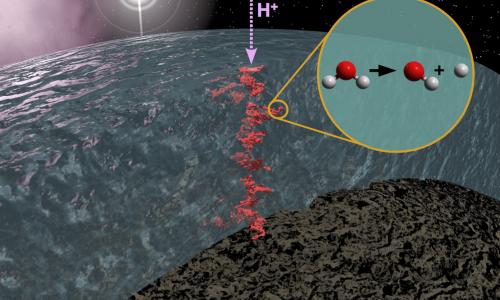Astrochemistry

Astrochemistry at UVa covers a variety of research topics involving the chemistry that occurs in interstellar clouds of gas and dust
The field of astrochemistry is concerned with the study of chemical processes that occur in extraterrestrial environments. One example of this research area is the study of the formation of chemical compounds from ‘star stuff’, the basic building blocks that fill the interstellar void and which go on to form planetary bodies and stars. Modelling this chemistry can shed light on the way molecules are produced and distributed in interstellar space, and how they may be ultimately incorporated into planets and other bodies. Improving our understanding of these processes throughout the universe expands our fundamental knowledge and gives us insight into the development of our own corner of space.
Astrochemistry at UVa covers a variety of research topics, such as: chemistry in interstellar clouds of gas and dust throughout our galaxy and others; complex organic chemistry during the collapse of portions of these clouds to produce new stars; coupled chemical and physical models of star and planet formation, including protoplanetary disks; and the chemical evolution of comets.
This research uses large kinetic simulations to model the concentrations of molecules, many of which are unusual by terrestrial standards given the extreme differences in temperatures and pressures from laboratory conditions. The results of these simulations can be validated and improved through comparison to spectroscopic observations of these molecules using radiotelescopes. Such comparisons yield a better understanding of the physical conditions in interstellar clouds, especially the regions that are collapsing to form stars. Related chemical reactions thought to occur in the interstellar medium are studied by theoretical and experimental methods; these reactions occur both in the gas phase and on surfaces of tiny dust particles known as interstellar grains. By simulating the chemistry on an astronomical timescale (millions of years), we can trace the progression of molecular complexity in the galaxy and understand the chemical enrichment of the material that will ultimately form stars and planets. For more information on current research projects in this area, visit the faculty websites below.